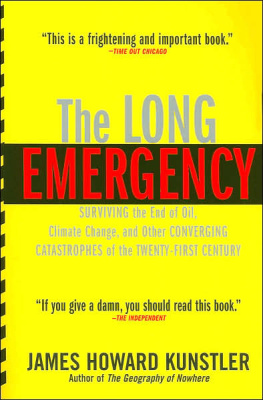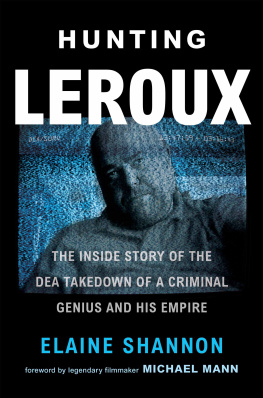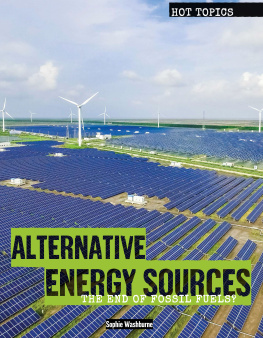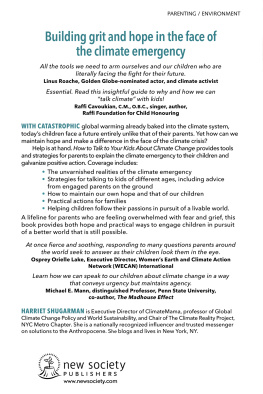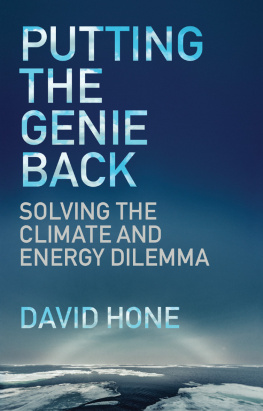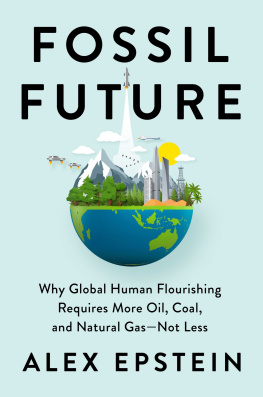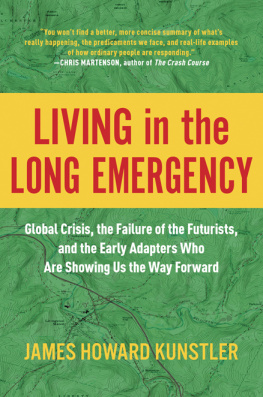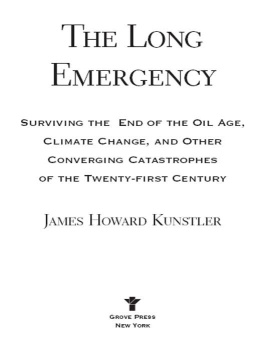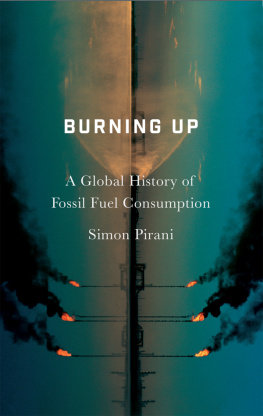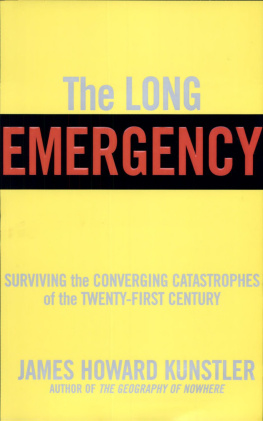Praise for The Long Emergency:
Kunstler is Americas version of an Old Testament prophet, a stinging social critic who warns of dark days ahead if we do not change the way we live.
Pulse
Funny, irreverent, and bluntTo his eternal credit, Kunstler doesnt predict the end of the world; he just doesnt think that Wal-Mart, monster homes or suburban high schools have much of a future.
Andrew Nikiforuk, The Globe and Mail
Kunstler displays a kind of macabre wit about the unpleasantness and strife that await us all. His assertions have a neat way of doubling back to anticipate your critiques. If you express doubt about his views, then you may well be among the deluded masses too addicted to your McSUV and McSuburb to accept the reality that lies ahead.
Katharine Mieszkowski, Salon.com
James Howard Kunstlers The Long Emergency may be destined to become the Dantes Inferno of the twenty-first century. It graphically depicts the horrific punishments that lie ahead for Americans for more than a century of sinful consumption and sprawling communities, fueled by the profligate use of cheap oil and gas. Its central messagethat the country will pay dearly unless it urgently develops new, sustainable community-scale food systems, energy sources, and living patternsshould be read, digested, and acted upon by every conscientious U.S. politician and citizen.
Michael Shuman, author of Going Local: Creating Self-Reliant Communities in a Global Age
James Howard Kunstler has given us, with his usual engaging wit and verve, a new kind of post-apocalypse scenario. Instead of the nuclear or ice-age wasteland of our earlier imaginings, he has depicted with detailed extrapolation the civilization of the United States after the oil runs out and a great economic collapse occurs. It is a strangely Arcadian vision, like the agrarian America that Jefferson, Calhoun, and the Southern Agrarians dreamed of. But Kunstler has fleshed it out with delightful quirky insights and provided our science fiction writers with a fresh mise-en-scene.
Frederick Turner, author of The New World and The Culture of Hope
An especial strength of this book is its break with some of the more pernicious strands in the contemporary left, specifically the lefts knee-jerk rejection of America acting militarily in its national interest. There are hints of Malthus here, and of Oswald Spanglers Decline of the West as well. Mr. Kunstlers book is a jeremiad, driven by authorial presence. Pithy, entertaining descriptions of historical phenomena like the Soviet Unionenliven the text, allowing the veteran commentator to expound on themes that might read leaden by a less facile wordsmith. The book succeeds as an accessible primer to a looming crisis that could end the American way of life.
A. G. Gancarski, The Washington Times
In the annals of doomsday literature The Long Emergency is destined to become the new standard. Demands frank consideration of what up to now has been unthinkable: that the ascendancy of the human race might have been a temporary phenomenonThis case has been made before, but here it is made powerfully and articulately, with no apology and no hint of reprieve. The Long Emergency represents a wake-up call in the same sense that a hand grenade tossed through your bedroom window might serve as an alarm clock. The book is stark and frightening. Read it soon.
Jim Charlier, Daily Camera
T HE L ONG E MERGENCY
Books by the Author
N ONFICTION
The City in Mind
Home from Nowhere
The Geography of Nowhere
N OVELS
Maggie Darling
Thunder Island
The Halloween Ball
The Hunt
Blood Solstice
An Embarrassment of Riches
The Life of Byron Jaynes
A Clown in the Moonlight
The Wampanaki Tales
T HE L ONG E MERGENCY
S URVIVING THE E ND OF THE O IL A GE ,
C LIMATE C HANGE, AND O THER
C ONVERGING C ATASTROPHES
OF THE T WENTY-FIRST C ENTURY
J AMES H OWARD K UNSTLER

GROVE PRESS
NEW YORK
Copyright 2005 by James Howard Kunstler
All rights reserved. No part of this book may be reproduced in any form or by any electronic or mechanical means, or the facilitation thereof, including information storage and retrieval systems, without permission in writing from the publisher, except by a reviewer, who may quote brief passages in a review. Any members of educational institutions wishing to photocopy part or all of the work for classroom use, or publishers who would like to obtain permission to include the work in an anthology, should send their inquiries to Grove/Atlantic, Inc., 841 Broadway, New York, NY 10003.
Library of Congress Cataloging-in-Publication Data
Kunstler, James Howard.
The long emergency: surviving the end of the oil age, climate change, and other converging catastrophes of the twenty-first century / James Howard Kunstler.
p. cm.
Includes bibliographical references.
ISBN: 978-1-55584-670-1
1. Petroleum as fuelUnited StatesSocial aspects. 2. Fossil fuelsUnited StatesSocial aspects. 3. Petroleum industry and tradeUnited StatesHistory20th century. 4. Petroleum industry and tradeUnited StatesHistory21st century. 5. Petroleum industry and tradeUnited StatesEconomic conditions20th century. 6. Petroleum industry and tradeUnited StatesEconomic conditions21st century. 7. Renewable energy sourcesUnited StatesSocial aspects. 8. Climate and civilization. 9. EnvironmentalismUnited StatesSocial aspects. I. Title.
TP355.K86 2005
303.4973dc22 2005040964
Grove Press
an imprint of Grove/Atlantic, Inc.
841 Broadway
New York, NY 10003
Distributed by Publishers Group West
www.groveatlantic.com
THIS BOOK IS FOR MY FRIENDS CHILDREN
BENJAMIN GOLDEN
NORABELLE GREENBERGER
OLIVER AND NICKY EDSFORTH
C ONTENTS
T HE FATAL METAPHOR OF PROGRESS, WHICH MEANS LEAVING THINGS BEHIND US, HAS
UTTERLY OBSCURED THE REAL IDEA OF GROWTH, WHICH MEANS LEAVING THINGS
INSIDE US.
G. K. Chesterton
D O THE GODS EXIST? I DO NOT
KNOW, BUT THEY SURE ACT AS IF THEY DID.
R F
S LEEPWALKING INTO THE F UTURE
Carl Jung, one of the fathers of psychology, famously remarked that people cannot stand too much reality. What youre about to read may challenge your assumptions about the kind of world we live in, and especially the kind of world into which time and events are propelling us. We are in for a rough ride through uncharted territory.
It has been very hard for Americanslost in dark raptures of nonstop infotainment, recreational shopping, and compulsive motoringto make sense of the gathering forces that will fundamentally alter the terms of everyday life in technological society. Even after the terrorist attacks of September 11, 2001, that collapsed the twin towers of the World Trade Center and sliced through the Pentagon, America is are still sleepwalking into the future. We have walked out of our burning house and we are now headed off the edge of a cliff. Beyond that cliff is an abyss of economic and political disorder on a scale that no one has ever seen before. I call this coming time the Long Emergency.
What follows is a harsh view of the decades ahead and what will happen, in the United States. Throughout this book I will concern myself with what I believe is happening, what will happen, or what is likely to happen, not what I hope or wish will happen. This is an important distinction. It is my view, for instance, that in the decades to come the national government will prove to be so impotent and ineffective in managing the enormous vicissitudes we face that the United States may not survive as a nation in any meaningful sense but rather will devolve into a set of autonomous regions. I do not welcome a crack-up of our nation but I think it is a plausible outcome that we ought to be prepared to face. I have published several books critical of the suburban living arrangement, which I regard as deeply pernicious to our society. While I believe we will be better off living differently, I dont welcome the tremendous personal hardship that will result as the infrastructure of that life loses its value and utility. I predict that we are entering an era of titanic international military strife over resources, but I certainly dont relish the prospect of war.

